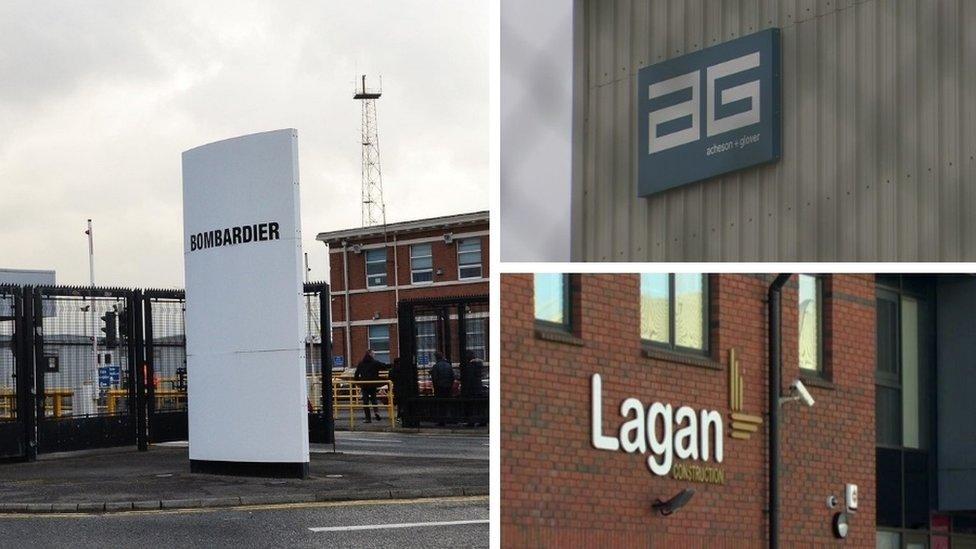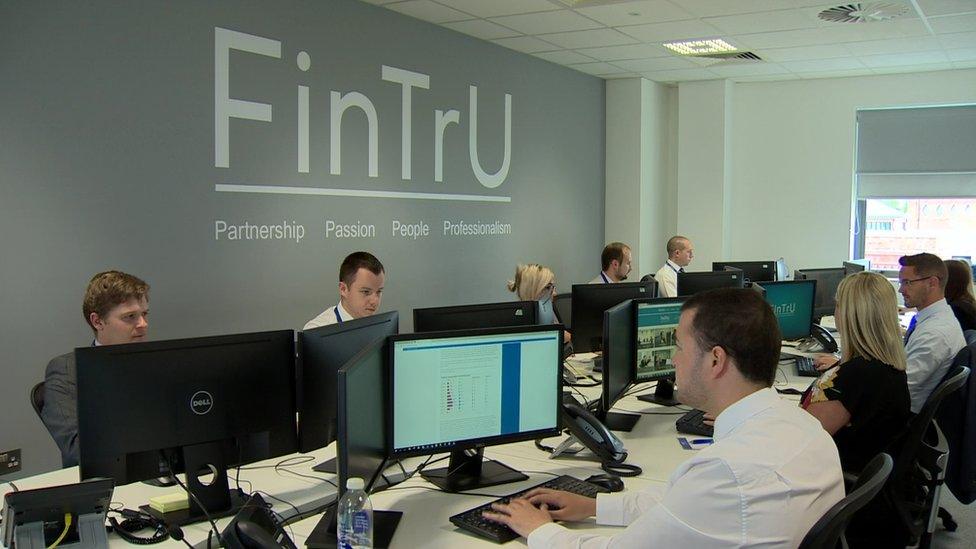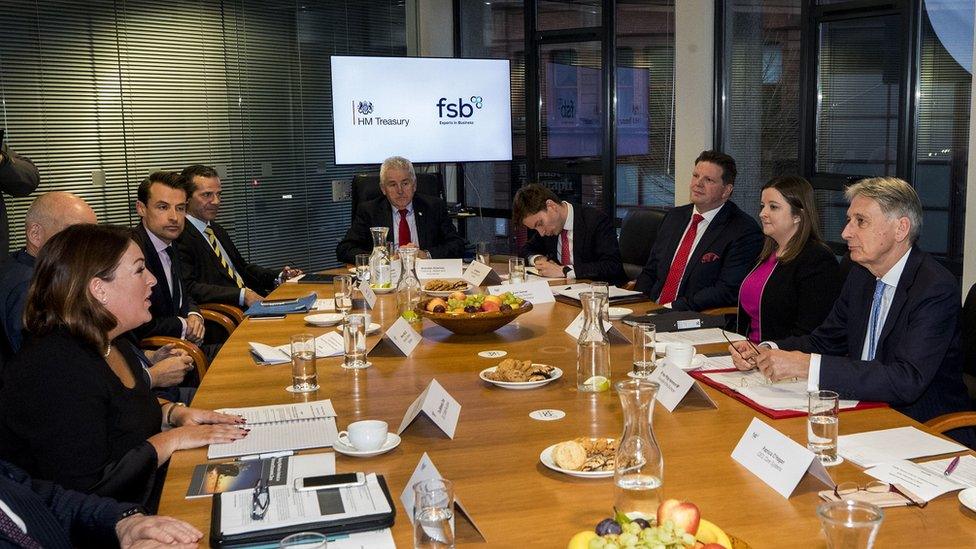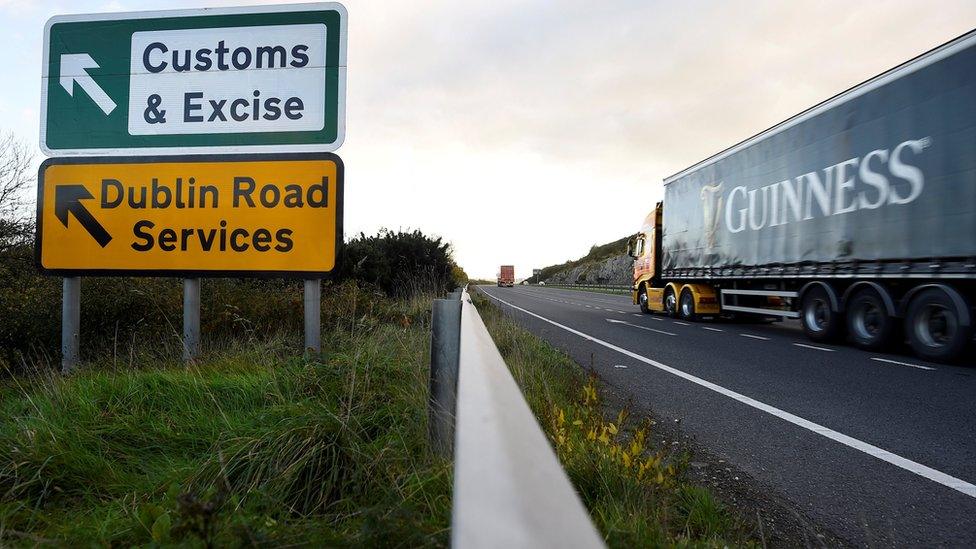Jobs market 'shining light' for Northern Ireland economy
- Published

Under the long shadow of Brexit, 2018 will go down as another year of uncertainty for Northern Ireland business.
But it would be wrong to state it caused total paralysis.
Yes, the economy was largely flat in terms of overall growth and the forecasts for 2019 are a pretty lacklustre 1%.
But jobs were created and the Northern Ireland unemployment rate hit a record low of 3.1%.

There were job losses at Bombardier, Acheson & Glover and Lagan Construction in 2018
Wages grew to an average £521 a week for a full-time worker - almost midway up the league table for the 12 regions of the UK.
"The labour market has been the real shining light of 2018," said Neil Gibson, chief economist at EY.
"Most people who are looking for a job are able to find one."
That is not to say there were not setbacks, with big jobs loses at Bombardier (again), as well as Lagan Construction and Acheson & Glover.

FinTrU created 305 new jobs in Derry
On a positive, the bakery Genesis Crafty was saved from closure in Magherafelt.
And Londonderry saw much-needed investment - a highlight being the 305 new posts creased by financial services firm FinTrU.
If business leaders grew impatient over Brexit clarity, well, they all but gave up on Stormont.
"There is about two billion pounds worth of infrastructure projects blocked up in the system," said Gordon Milligan, chairman of the Institute of Directors in Northern Ireland.
Casement Park GAA stadium and the north-south electricity interconnector are two of the many projects delayed because there are no ministers taking decisions.
Mr Milligan added: "If those projects were released, if ministers were in place, then think about the positive economic impact for Northern Ireland."

The chancellor met with business leaders when he came to Northern Ireland in November
However, the Chancellor of Exchequer did deliver some cheer.
Philip Hammond used his October budget to approve a city deal for the Belfast region and with it £350m of funding.
It was a timely boost as the city struggled to deal with a dagger to the heart of its retail sector in the form of the fire which devastated Bank Buildings in August.

A fire at Bank Buildings in August disrupted shopping in Belfast city centre in the months afterward
Shopper numbers fell in some parts of the city centre by 50-60% up until December.
Consumer confidence in Northern Ireland sank as the year wore on, partly weighed down by anxiety over Brexit.
The pound in the pocket lost value in 2018 - and will soon feel different too.
In 2019, three of Northern Ireland's four banks will begin switching to polymer currency, with Ulster Bank adding a further twist, with notes of vertical orientation.
- Published13 November 2018

- Published19 July 2018

- Published11 October 2018
